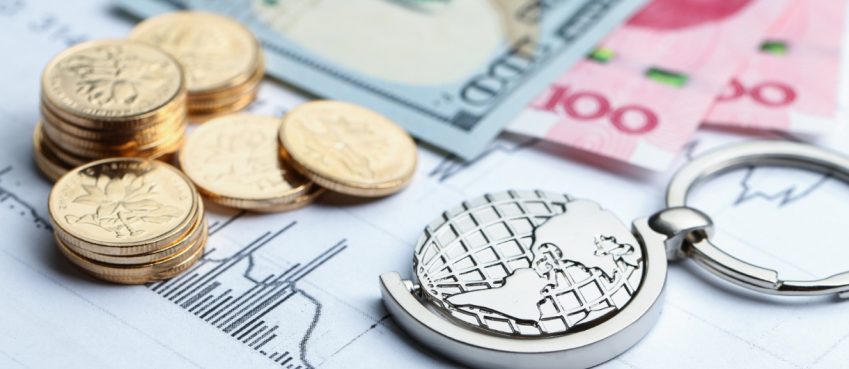
Was the British government’s decision to lend a fortune to businesses a good idea, or is it going to turn into a scandal? It is too early to tell, but it seems like a lot of the money the government lent out will never be paid back.
The British government felt it had to do everything it could to keep businesses from failing during the pandemic. This included giving out generous low-interest loans and allowing businesses to make claims about income without proving that these claims are true.
Many of the tens of billions of pounds the government lent out may never be paid back. Some of the loans must have been fraudulent – businesses could easily lie about whether or not they were eligible because they did not have to prove anything. Many businesses that took out the loans legitimately are already bankrupt and will never repay the money.
Businesses were also allowed to act as lenders and not only receive money. The government also backed money that businesses lent out, so taxpayers have to pay for the loan if the lenders fail to pay. This led to a scandal involving a company called Greensill Capital, which illegitimately lent out a fortune and then went out of business.
What Was Greensill Capital?
Greensill Capital was a lending firm that collapsed in 2021, leading to taxpayers losing hundreds of millions of pounds. The company lent money to the Guptas Family Group, which owns the company Liberty Steel. Liberty Steel owns several steel plants in Britain.
Greensill Capital was not a flourishing business. Instead, they were on their way to bankruptcy in 2020 and 2021.
Eventually, their insurers lost patience with them and refused to insure Greensill Capital’s loans. That was the end of the business – they filed for insolvency on March 9, 2021.
Also read: Best 10 Email Marketing Tools in 2021
The British Government Backed the Loans
What makes this story a scandal is that Greensill Capital’s several very large loans to the Guptas Family Group were government-backed. If a government-backed loan is never repaid, the government must print money, raise taxes, or cut services to pay for it.
Greensill Capital made eight loans of 50 million pounds each to Sanjiv Gupta’s steel empire. The loans were all government-backed because they occurred through the Coronavirus Large Business Interruption Loan Scheme (CLBILS).
CLBIS is a scheme that allows large businesses and not only banks to make coronavirus relief loans. While the government does not back 100% of these loans, it does back 80% of them. Taxpayers could lose a fortune if many of these loans are never repaid.
What Kind of a Lending Firm was Greensill Capital?
Greensill Capital was largely a supply chain factoring organization. This means that the company bought invoices from companies that needed money right away. They would buy these invoices at a discount and accept the risk of the money never being repaid.
Companies were willing to do this for the sake of getting cash quickly. Sometimes, a company is short on money but has customers that owe them.
Greensill Capital would buy these invoices or customers’ debts from the company and get paid whenever the customers paid what they owed. Companies can make a lot of money this way, although they lose money whenever the companies don’t pay. This is actually a fairly safe, low-risk strategy.
Later on, Greensill Capital switched to a higher-risk strategy known as reverse factoring. Reverse factoring involves paying off a company’s debts to its suppliers and then having the company owe them the money, plus interest.
This is a risky sort of lending – if the company fails, the lending firm won’t get the money back. Another risky strategy is lending money to businesses based on how much money they are expected to make in the future.
This is known as future accounts receivable finance and can also get you in a lot of trouble if you lend to the wrong company. In the end, Greensill Capital took too many risks, such as lending to a steel company despite falling steel prices, and could not stay in business.
Also read: What Is The Best Time ⌛ and Day 📅 To Post On Instagram? It Is Definitely NOT ❌ Sunday (A Complete Guide)
These Huge Loans Were Illegitimate
According to the coronavirus lending rules, no more than one loan per borrowing company was allowed. Greensill Capital was not legally allowed to lend to the Guptas Family group eight times.
It is not yet publicly known what kind of a loophole Greensill Capital used to make eight loans, but an investigation must have already uncovered the truth. Possibly, it was so easy for banks and businesses to make the coronavirus relief loans that no one even noticed that Greensill was doing anything fraudulent.
Liberty Steel is an Important Business
Liberty steel is a large business that creates jobs. If it fails, thousands of British workers will lose their jobs. Despite the problems with generous government lending, it did keep many businesses alive.
Many of the loans went to honest borrowers that will pay the money back. We do not yet know how large the total amount of damage is, but it could be a significant fraction of the total money lent out.
Also read: What Does “FedEx Shipment Exception” Status Mean? What To Do & How To Handle It?
Did Dave Cameron do Anything Unethical?
Former prime minister Dave Cameron may have had a personal stake in keeping Greensill Capital alive. He had a lot of money invested in the lending firm, so much that he may have been expecting to make as much as 200 million pounds of Greensill Capital’s stock increased.
Since he had so much to lose, he might have used his powers unethically and tried to get government money for the struggling business. In the spring/summer of 2020, Cameron sent dozens of messages to government officials, asking for the government to support Greensill Capital.
Although David Cameron did not do anything illegal – he apparently did not break the rules of lobbying as a former prime minister – the scandal has hurt his reputation. Many people involved in the Greensill Capital affair may have broken the law and may face criminal charges.
Top 10 News
-
01
10 Exciting iPhone 16 Features You Can Try Right Now
Tuesday November 19, 2024
-
02
10 Best Anatomy Apps For Physiologist Beginners
Tuesday November 12, 2024
-
03
Top 10 Websites And Apps Like Thumbtack
Tuesday November 5, 2024
-
04
Top 10 Sites Like Omegle That Offer Random Video Chat
Monday October 21, 2024
-
05
Entrepreneurial Ideas To Make 5K In A Month (10 Realistic Wa...
Monday October 7, 2024
-
06
[10 Best] Cash Advance Apps Like Moneylion And Dave (No Cred...
Friday September 20, 2024
-
07
Top 10 Richest Person In The World
Tuesday August 27, 2024
-
08
Top 10 Unicorn Startups In The World (2024-25)
Monday August 26, 2024
-
09
Top 10 IT Companies In The World By Market Cap
Thursday August 22, 2024
-
10
[10 New] Best OnionPlay Alternatives To Stream TV Shows And ...
Tuesday June 11, 2024







